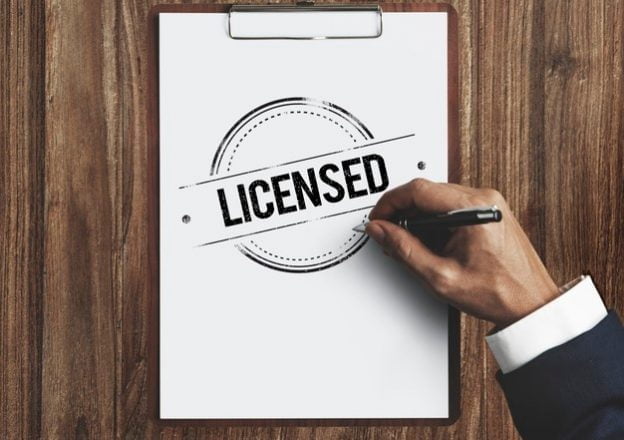For many enterprises, doing business in Vietnam may have some challenges but there are also many lucrative upsides. Many businesses aspire to enhance their profits by tapping into the growing Asian market.
Due to the size of the market and its great geographic position, Vietnam is a business-friendly destination.
Despite these above advantages, there are still numerous challenges of doing business in Vietnam as well as difficulties in living in Vietnam. Foreign investors will face considerable headaches as a result of these issues, which may cause them to delay the commencement of their activities.
While they will eventually be resolved, enlisting the assistance of a local company or even locals is likely to expedite the process. The following are some of the most common challenges of doing business in Vietnam that foreigners might experience.
Table of Contents
Language and culture barrier when doing business in Vietnam
Language barriers
The language barrier is one of the most obvious challenges of doing business in Vietnam when foreign investors decide to invest in Vietnam.
Firstly, Vietnamese is the national language spoken throughout the country. At state agencies, all official transactions are conducted in Vietnamese, with just a few typical foreign language translations (such as legal documents, permits, guiding petitions, administrative decisions, official communications, and litigations).
Secondly, English is the most widely spoken foreign language in Vietnam. It is widely used in major cities and is taught at all levels of education. The percentage of Vietnamese people who can communicate in English is quite high. However, their English proficiency is average, not good enough to be employed in a professional business setting.
The Vietnamese Government’s officers have a good level of English, but they do not often use and practice English in their work. As a result, foreign investors find it difficult to communicate directly with Vietnamese government officials.
Additionally, employees of large firms, banks, and international corporations in Vietnam have an average command of the English language. Moreover, the English skills of leaders and employees of Vietnamese small-medium enterprises or family-owned companies are not really good.
Regarding the other foreign languages like Chinese, Korean, and Japanese, the rate of Vietnamese who are learning and using these foreign languages is low compared to English, but it is increasing rapidly.

Quick note: Bizspective specialises in selling business, both full buyouts and partial investment, this is a great way to skip all of the start-up procedures and potentially reducing your risk as the business will be fully operational and potentially already profitable.
It can also be a passive investment (buying shares in the business) if you are not looking to be involved in the operations however receiving the perks of being an investor. Some of the perks would include diversifying your investment portfolio and obtaining a long term visa in Vietnam. Take a look at our listings below.
Businesses For Sale Listings
In Vietnam
Culture barriers when doing business in Vietnam
Besides language barriers, foreigners also have to face cultural barriers when doing business in Vietnam. Vietnamese business culture is centred on the social connection formed between company partners.
Discussing personal information about your family and interests with local suppliers while doing business in Vietnam will build your relationship with them and may influence future business negotiations. The majority of connections are formed through recommendations and referrals, and the price you are offered may be determined by how strong your network is.
Moreover, some businesses often develop through relationships instead of their competence, ability, and technology while doing business in Vietnam. The use of connections is becoming increasingly common in corporate domains such as land development, natural resource development, infrastructure building, public investment bids, transportation, and businesses needing specific approvals (e.g. banking, insurance, gas, and petroleum trading, etc.)

Inadequate infrastructure
Despite having an interest in Vietnam because of its low-cost workforce and rapidly expanding market, many international companies have been hesitant to make investments in Vietnam due to serious challenges regarding the country’s poor infrastructure.
Vietnam is facing significant infrastructure challenges, particularly at its ports – which are big problems in doing business in Vietnam. There are quite a few large ports to accommodate the huge volume of goods for trade. According to statistics published by Bloomberg Intelligence, China owns six of the world’s top ten ports by container traffic, including Shanghai at No. 1, while Vietnam’s two largest ports, Saigon and Cai Mep, are ranked No. 25 and No. 50, respectively.
The utilization of small ports and boats, which account for nearly 80% of container imports and exports in Vietnam, is a big problem for the country’s larger ports. Some ports are also overburdened with goods, resulting in traffic congestion and substantial delays.
The country’s road and rail infrastructure have likewise failed to keep up with its economic expansion. Because the rail and road infrastructure near ports is still undeveloped and there is currently no rail network linking various ports, freight must be delivered by road. This results in a significant increase in shipping prices, which is considered a big challenge in doing business in Vietnam.

Lack of transparency and bureaucracy
Vietnam is a country in transition, which is becoming increasingly globalized. As regulations progress into the modern era, you’ll likely find a lot of bureaucracy and a lack of transparency. The lack of transparency and bureaucracy seems to be another challenge of doing business in Vietnam when foreign investors want to enter the potential Asian market. The regulatory and commercial laws of Vietnam, as well as the overlapping jurisdictions of various government agencies, can lead to inconsistency in government policy.
Poor corporate disclosure requirements and a lack of financial transparency can also make Customer Due Diligence (CDD) and Know Your Customer (KYC) more difficult. It is a wise decision to find a professional legal consultant in Vietnam to have a comprehensive overview of Vietnam’s legacy or regulations to run business in Vietnam smoothly and effectively. Definitely, this person will help you tackle these challenges of doing business in Vietnam successfully.

Tax
When establishing a company in Vietnam, another challenge of doing business in Vietnam a foreign investor must deal with is the tax system. Although reform for Vietnam’s complicated tax system is underway, there are still 10 corporate tax payments that must be made every year. Other taxes also include VAT and social insurance.
Through the reform, the government of Vietnam intends to simplify all tax calculation and declaration procedures, and sort out unclear tax issues in order to create a favourable business environment. However, there is still a huge amount of workload as well as procedure-related to taxation. Generally, business tax in Vietnam seems to be relatively complicated and confusing.
Tax registration and payment of the business license tax
The business license certificate number is also the company’s tax number. All companies must pay taxes through an online system. Companies also submit tax declarations and reports through this system. To gain access to this system, businesses must get an electronic signature.
Corporate compliance in Vietnam involves the following tasks and Vietnam tax timeline :
- Accounting and tax reporting: this includes corporate income tax, value-added tax, and personal income tax.
- Payment of the annual business license tax: companies must pay this starting on their second year of business.
- Audited annual report: an independent Vietnamese auditing company must review your financial statements at the end of each fiscal year.
- Foreign investment reports: the report must include profits, losses, and expenses throughout the year.
- Compliance with employment laws: these include registering employees with social insurance. You also need to make sure that all foreign employees have the necessary permits to work in Vietnam.
To overcome these challenges of doing business in Vietnam, get in touch with us. With valuable experience and deep knowledge about tax regulations in Vietnam, Bizspective’s tax Consultant will helpfully advise and assist in maintaining compliance in Vietnam.

Intellectual property rights
In fact, Vietnam has rules in place to safeguard intellectual property rights. However, enforcement is notoriously lax, and intellectual property abuse continues to be a challenge of doing business in Vietnam that foreign investors have to encounter.
For instance, software piracy rates were reported to be at 74% in 2017. The government is addressing the issue by drafting new legislation to safeguard intellectual property rights, such as copyright, industrial property, and plant varieties.
Foreign enterprises that want to register their intellectual property should do so through an authorized agent at Vietnam’s National Office of Industrial Property or NoIP. Regardless of the authority of the NoIP, international enterprises with intellectual property to protect should make sure it is protected before exporting or establishing a presence in Vietnam.

Lengthy registration process
The process of forming a corporation in Vietnam is a challenge of doing business in Vietnam for foreign investors because it entails a number of procedures. Depending on the sort of company being performed, the procedure might take anywhere from one to four months.
The first step is to apply for and get an Investment Registration Certificate (IRC), which can take up to a month. The company will then need a Business Registration certificate, which will take another week to complete. Finally, depending on the sort of activity established, the company may need to apply for additional permits.
Investment registration certificate for doing business in Vietnam
An investment registration certificate is required when registering a foreign-owned company in Vietnam. This certificate is issued by the Department of Planning and Investment and it normally takes approximately a month to arrive.
However, obtaining the certificate will take longer if no WTO agreements or local laws prohibit foreign ownership in that industry. One or more ministries will need to approve your business at the ministry level.

Business registration certificate
When doing business in Vietnam, foreigners must also get a certificate of registration (BRC). This certificate is also issued by the Department of Planning and Investment. The Business Registration Certificate (BRC) is also known as the Enterprise Registration Certificate (ERC).
Apply for sub-licenses or permits, if applicable
It takes around a month to register a company in Vietnam. Some businesses, however, may need to file for sublicenses, depending on their industry. The registration procedure will take longer in such instances.
Certain enterprises require additional permissions to operate. Cosmetics firms, for example, must register their items before selling or distributing them. This might take anything from a few weeks to many months to complete. This may lead to some unexpected challenges for foreign investors.
The legal consultant will handle all of your sub-licenses and permissions, in addition to company registration. We will also assist you with any requirements.

Alternatives to Company Registration in Vietnam
In some cases, it is not necessary to set up a company in Vietnam. There are alternative ways to enter the Vietnamese market in which Business set-up consultants in Bizspective are able to offer you valuable advice by their deep understanding and experience.
Representative Office in Vietnam
Representative offices in Vietnam can act on behalf of a foreign parent company. A representative office cannot generate income locally, but it can perform tasks in support of the parent company. It’s a way to enter the Vietnamese market without incorporating a company.
Employer of Record in Vietnam
With an employer of record in Vietnam, you can hire employees without establishing a company or representative office. As your employer of record, we will put your employees on our payroll. We will also take care of maintaining compliance with local employment laws. Emerhub can also assist you in sourcing and recruiting candidates in Vietnam.
Importer of Record in Vietnam
Before you can import goods into Vietnam, you will need certain certificates and licenses. Waiting to get these documents before importing your goods will delay business operations. You can start importing goods into Vietnam immediately through an importer of record.

FAQs for doing business in Vietnam
What are the advantages of doing business in Vietnam?
Despite several challenges of doing business in Vietnam, there are many benefits such as the low cost of starting a business, regulations that encourage foreign investment, and the government’s openness to the global economy are just a few of the factors that make Vietnam an attractive location for business development.
Other factors include its strategic location with direct access to some of the world’s most important shipping routes, stable GDP growth, and competitive labor costs.
What challenges should I be aware of if I decide to grow into Vietnam?
It’s crucial to think about the foreign ownership regulations in relation to the sort of business you want to start in the nation, the timeline for having operations up and running, the infrastructure, and transportation constraints.
What is the corporate tax rate?
According to Business taxes in Vietnam, the corporate rate is 20%
What are the business entity types available?
The most common business entity forms in Vietnam are:
- Single-Limited Liability Company (1M-LLC)
- Multi-Member Liability Company (2M-LLC)
- Joint Stock Company (JSC)

How long does it take to register a business in Vietnam?
The registration procedure will take around one month if your firm does not have any additional requirements related to the sort of business it performs. If your firm requires additional permits, such as those for commerce or tourism, the process might take up to three or four months.
What does the company founder need to prepare when doing business in Vietnam?
A company founder might be a person or a business. The documentation required by an individual founder differs from those required by a corporation.
A notarized copy of an individual founder’s passport is required. You must also present a bank statement in your own name. A company, on the other hand, must provide a certificate of formation, articles of organization, and a list of its directors. If the company is less than two years established, it must additionally produce financial statements from the previous two years or a bank statement.
Is the company registration process different if I have a local partner?
No, the company registration procedure in Vietnam is the same for companies with whatever level of foreign ownership.
